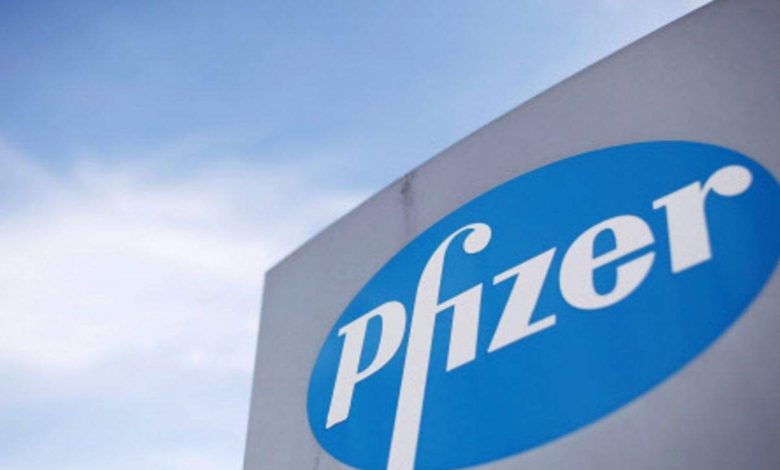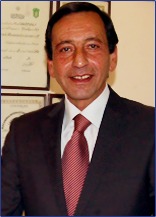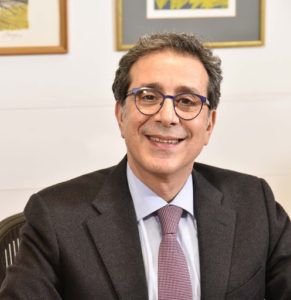Pfizer Oncology Summit Discusses Advances in Oncology
The 13th AfME Oncology Summit

Dubai – ![]() :
:
Pfizer Inc. announced the successful completion of its 13th Africa and Middle East (AfME) Oncology Summit. The summit that brought together over 250 health care professionals from across the region focused on critical topics and insightful discussions at the forefront of breast cancer, genitourinary cancer (GU), and non-small-cell lung cancer (NSCLC).
These cancers account for over 40% prevalence amongst all types of cancers in specific geographies in the region today. The summit explored the optimal management of patients with these cancers in clinical practice.

Yasser El Dershaby, Vice President and Pfizer Medical Affairs Lead, Africa, and the Middle East said: “I am proud that despite the many challenges faced due to the ongoing global pandemic, we have come together for our 13th session. By embracing digital technology, interactive webinars have covered interesting insights, advances, and discussions on the future of oncology that will ultimately create better treatment options and improve patient lives.”
He added: “At Pfizer, our breakthroughs are not only in the science that we pioneer and the products that we manufacture but also in the way that we bring them to the patients, who might need them. Pfizer patient access programs across AfME today have made a real difference for numerous individuals suffering from various oncology and cancerous conditions The role of partnerships and the support of regulatory bodies for increased patient access has been and will remain critical. Across Africa and Middle East we are operating at speed to bring new medicines and innovative treatments to the countries to serve unmet patient needs.”

Prof. Jean-Marc A Nabholtz, Professor of Oncology, Oncology Centre, King Saud University Medical City, Riyadh: “Forums like these allow us to bring the best industry minds together to share insights and accelerate awareness and access to the most innovative treatments and methods. We need more such platforms and forums to support patients across the region in fighting this war against cancer. Breast cancer itself is one of the deadliest diseases with too high prevalence in the area. From experience, we know that early diagnosis means higher cure rates, lower treatment expenses, and a much better quality of life for patients and their families”.
 Prof. Marwan Ghosn, Chairman of Hematology-Oncology Department, Faculty of Medicine, Saint Joseph University, Beirut, Lebanon: “Technology is a great enabler. I am extremely pleased to come together with the wider industry and deep dive into scientific know-how and evidence-based updates. Ensuring better patient outcomes is the future of oncology, and together, we will surely get there. Genitourinary cancers develop in the male and female reproductive systems and adrenal glands that are a part of the GU tract. In the case of Metastatic Bladder Cancer, for instance, elderly patients, unfortunately, have other comorbidities which makes the choice of treatments more limited.. However, with advances and revolutions in drugs along with a combination of targeted treatments, patients can look forward to a better quality of life as the treatments boost the entire immune system. The introduction of immunotherapy will help control and destroy cancer cells, alone or in combination with other classical chemotherapies or targeted therapies. We are excited about these treatments as they open up new horizons and hope for patients.”
Prof. Marwan Ghosn, Chairman of Hematology-Oncology Department, Faculty of Medicine, Saint Joseph University, Beirut, Lebanon: “Technology is a great enabler. I am extremely pleased to come together with the wider industry and deep dive into scientific know-how and evidence-based updates. Ensuring better patient outcomes is the future of oncology, and together, we will surely get there. Genitourinary cancers develop in the male and female reproductive systems and adrenal glands that are a part of the GU tract. In the case of Metastatic Bladder Cancer, for instance, elderly patients, unfortunately, have other comorbidities which makes the choice of treatments more limited.. However, with advances and revolutions in drugs along with a combination of targeted treatments, patients can look forward to a better quality of life as the treatments boost the entire immune system. The introduction of immunotherapy will help control and destroy cancer cells, alone or in combination with other classical chemotherapies or targeted therapies. We are excited about these treatments as they open up new horizons and hope for patients.”
Dr. Yasser Salah Eldin Sayed Abd El Kader, Director of Oncology Center, Faculty of Medicine, Cairo University, Egypt, said: “The importance of sharing real-world data, innovations, and methods to fight this disease cannot be more underlined. We must commit to working together as members of the broader ecosystem to ensure we continue to fight against this deadly disease that has affected millions around the region. When it comes to lung cancer, the leading cause is still lifestyle-related, i.e., smoking. One reason why it so deadly is that it is hard to find in its early stages. It may take years for lung cancer to grow, and there are usually no symptoms early on. By the time you start to notice symptoms, cancer often has spread to other parts of the body. Fortunately, state-of-the-art diagnostic testing and the latest treatment options for EGFR+ advanced non-small-cell lung cancer (NSCLC) provide hope and optimism to patients. On another note, anti-smoking awareness campaigns remain critical to success.”
Pfizer has been operating across AfME for over 60 years. It is focussed on bringing new medicines, treatments, and breakthroughs to the market at speed to help change patients’ lives.




